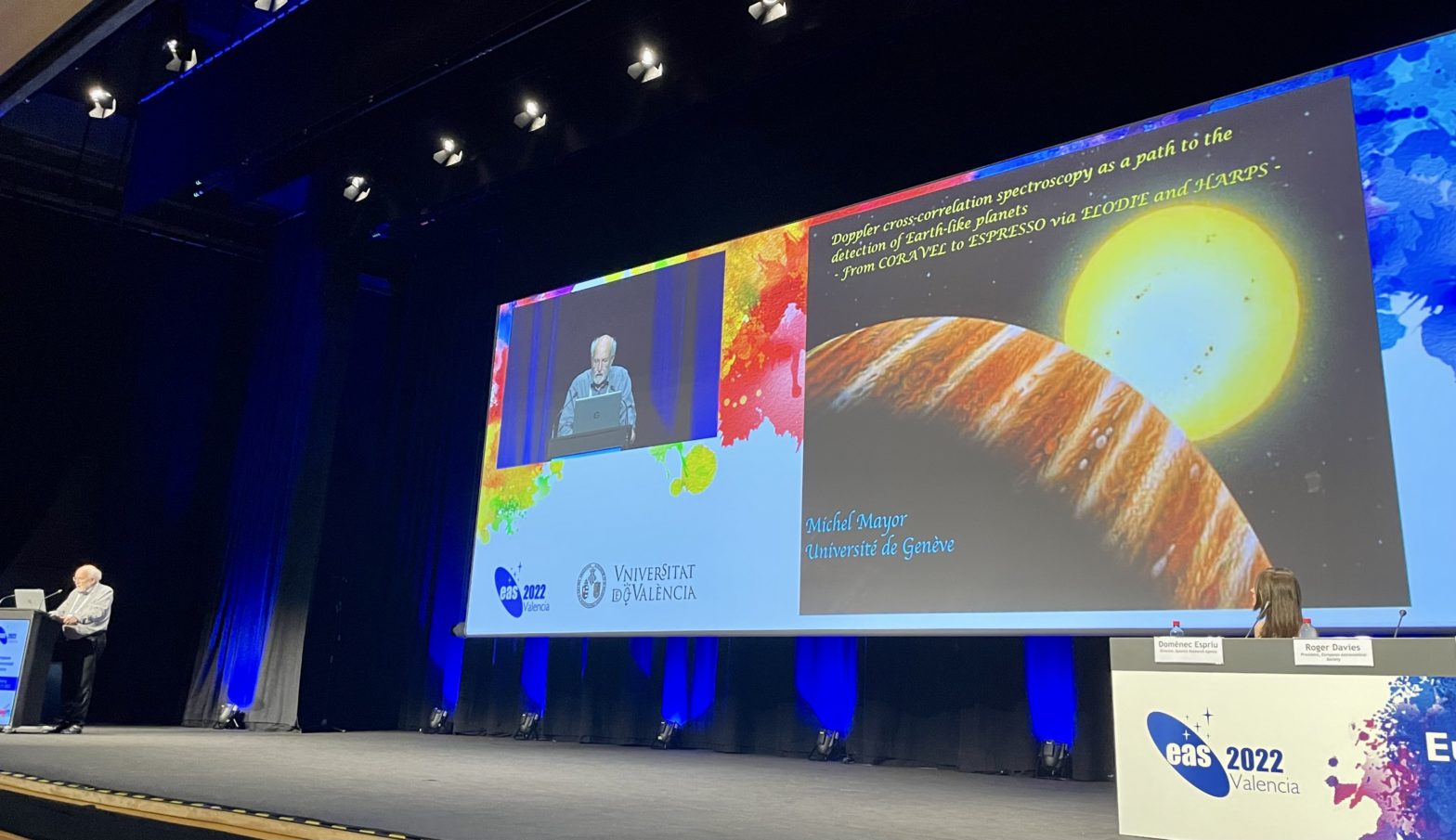Over 1700 astronomers gathered in Valencia, Spain, for the annual meeting of the European Astronomical Society, which takes place from 27 June-1 July 2022. The conference started today with a speech by María Teresa Fernández de la Vega, President of the Women for Africa Foundation and President of the Spanish Council of State, and a plenary talk by Michel Mayor (University of Geneva, Switzerland), Nobel Prize winner and discoverer of the first extrasolar planet in 1995. The conference is the annual professional astronomy and space science meeting of the European Astronomical Society (EAS). Leading researchers present their latest work.
#EASValencia2022 offers 15 Symposia, 36 Special Sessions and 10 Lunch Sessions, and will feature over 600 contributed talks and 1000 ePosters. In addition, the scientific program includes 8 Plenary Talks, 3 Community Reports and 8 Prize Award Talks and Ceremonies. Over 1700 people gathered in Valencia, another 200 registered for online participation only.
The meeting covers a wide range of topics, from gravitational waves, cosmology, exoplanets, and stellar astrophysics to data science, diversity & welfare, and development & outreach. There are also sessions on Gaia, the James Webb Space Telescope, and the Event Horizon Telescope.
The interactive scientific programme can be found here: https://eas2022programme.kuoni-congress.info/2022-06-27. The plenary talks are listed here: https://eas.unige.ch/EAS2022/plenary.jsp.
Michel Mayor will also give a public lecture, entitled ‘Other Worlds in the Cosmos? The Search for Planets Similar to our Earth and… perhaps Sheltering Life!’ The lecture will be held in the Santiago Grisolía Auditorium of the Museu de les Ciències on Wednesday 29 June 2022, at 19:00 pm. Registration via the web page of the museum: https://www.cac.es/en/museu-de-les-ciencies/Ciclos-y-conferencias/Astronomia/michel-mayor-otros-mundos.html.
The European Astronomical Society (EAS) promotes and advances astronomy in Europe. As an independent body, the EAS is able to act on matters that need to be handled at a European level on behalf of the European astronomical community. In its endeavours the EAS collaborates with affiliated national astronomical societies and also with pan-European research organisations and networks. Founded in 1990, the EAS is a society of individual members. All astronomers may join the society, irrespective of their field of research, or their country of work or origin. In addition, corporations, publishers and non-profit organisations can become organizational members of the EAS. The EAS, together with one of its affiliated societies, organises the annual EAS meeting to enhance its links with national communities, to broaden connections between individual members and to promote European networks
